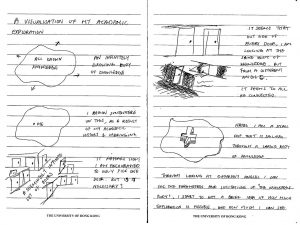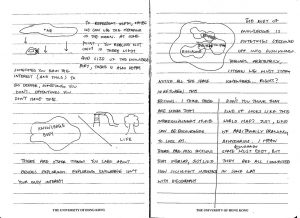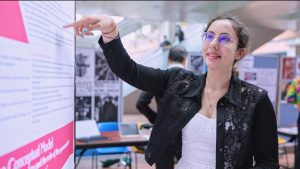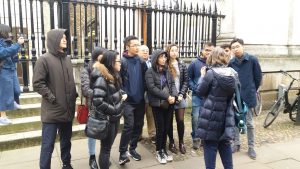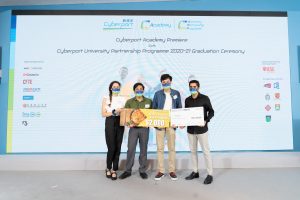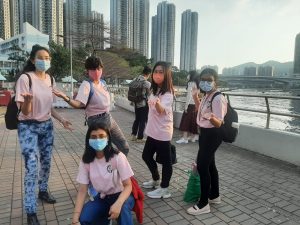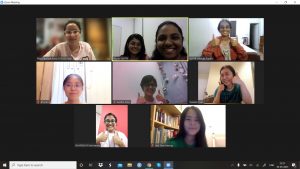- Gender Inequality and Interdisciplinarity through Lauren Chan, Year 2
- Meet Patrick - Year 4
- Interview with Jim - Year 4
- Culinary Cultures with Aastha - Year 4
- Khushee’s Intellectual Journey - Year 4
- “On Interdisciplinarity” by Zinei - Year 4
- Laidlaw Scholar Christie - Year 2
- Combining Interdisciplinary Education, Business and Exchange: William - Year 3
- Gitanjali’s Memorable Moments - Alumnus
A bespoke degree programme which is unique to me, my identity, and my experiences.
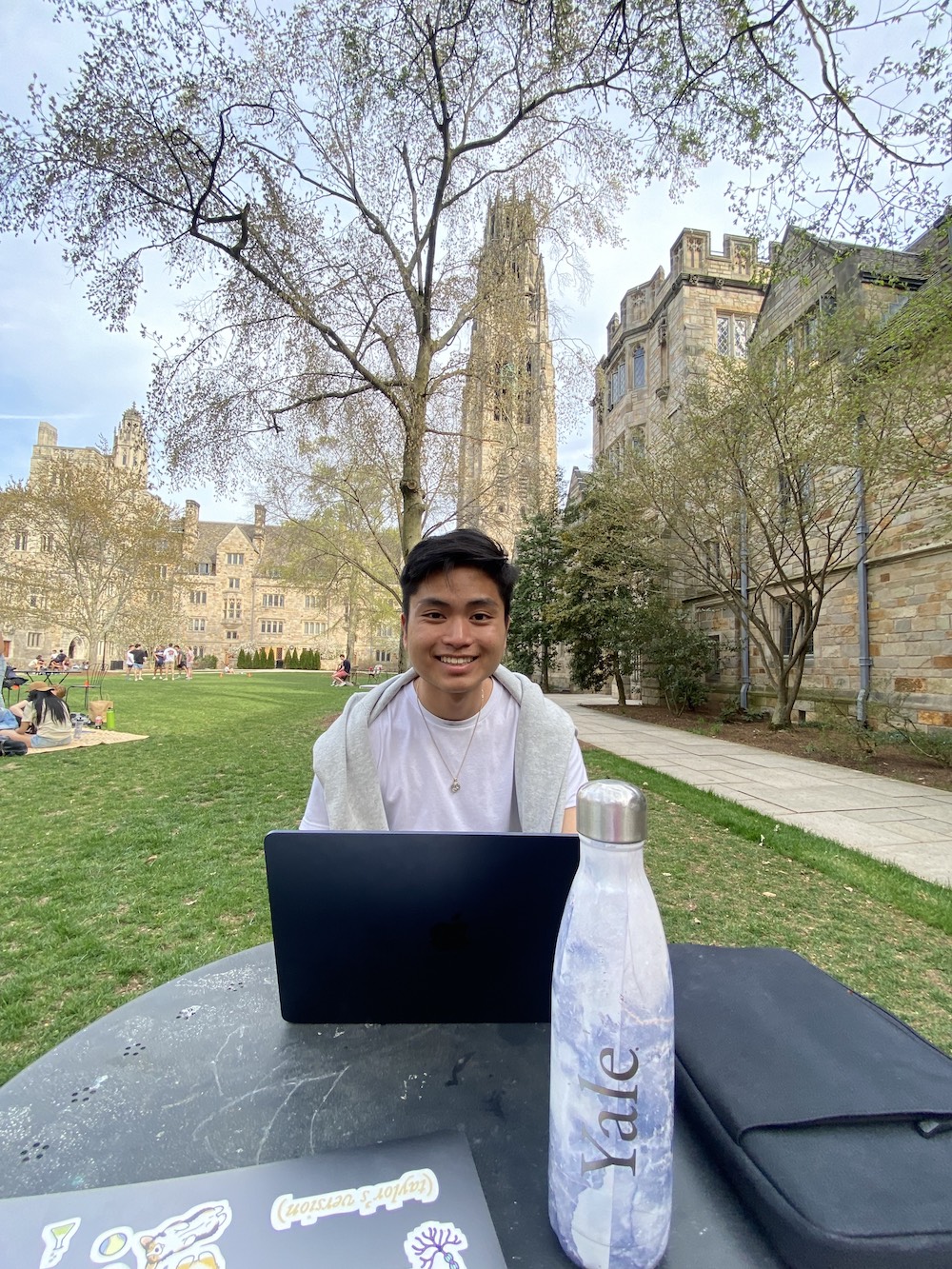
Patrick Kho
BASc, Year IV
Major in Interdisciplinary Studies
Minor in Mathematics
Concentration in Critical Artificial Intelligence Studies
Exchanged to Yale University
To me, interdisciplinary education means freedom and self-discovery! I’m really fortunate that I’m able to pursue different interest from diverse fields, and more importantly, combine these together towards a bespoke degree programme which is unique to me, my identity, and my experiences.
I’m from the Philippines originally, and my academic interests are primarily influenced by how dependent many Filipinos are on the internet and mobile phones (fun fact: Filipinos are consistently #1 in social media use internationally). With the BASc, I’ve been building a concentration portfolio to understand how emerging digital technologies are transforming the Philippines and the world. Titled “Critical Artificial Intelligence Studies”, my concentration fuses critical theory, applied mathematics, and anthropology with technological literacy to understand the ways in which technology shapes culture, and how culture is recursively shaped by technology. It’s given me the chance to evaluate important interdisciplinary issues, ranging from the biases in object-detection models of autonomous vehicles to how mobile phones mediate parenthood for overseas Filipino workers in Hong Kong.
Last summer, I interned at Bilby, a Hong Kong based machine learning startup that uses data to ‘decode’ China’s internal structure for foreign investors. Working in the tech team, some of my work involved testing various algorithms on Bilby’s network dataset to (hopefully) expand the company’s SaaS product and expanding the keyword searches of Bilby’s automated newsletters through Python and SQL. Often, I had to judge which algorithms worked best in generating the most useful insights, and because of this, I was also challenged to connect my own programming tasks to the broader contexts of global politics. Especially with my interdisciplinary interests in technology and culture, working in the nexus between computing and political issues was an incredibly valuable experience.
Looking to the future, something I’m really excited about is spending my junior year at Yale, through the Visiting International Students Program (for which HKU is a partner institution!). Yale offers really interesting courses in the intersections of science, technology and society under the History of Science, Medicine, and Public Health major, and I can’t wait to delve deeper into what I’m interested in. I’m also just as excited to see how differently applied math courses might be taught in the US, and what Yale’s interdisciplinary science courses are like (I’m in a seminar about the science and history of electromagnetism which is cross listed with both physics and history!).
Interdisciplinarity nurtures my ability to fast-learn other disciplines’ knowledge and allows me to differentiate different foci in each discipline.
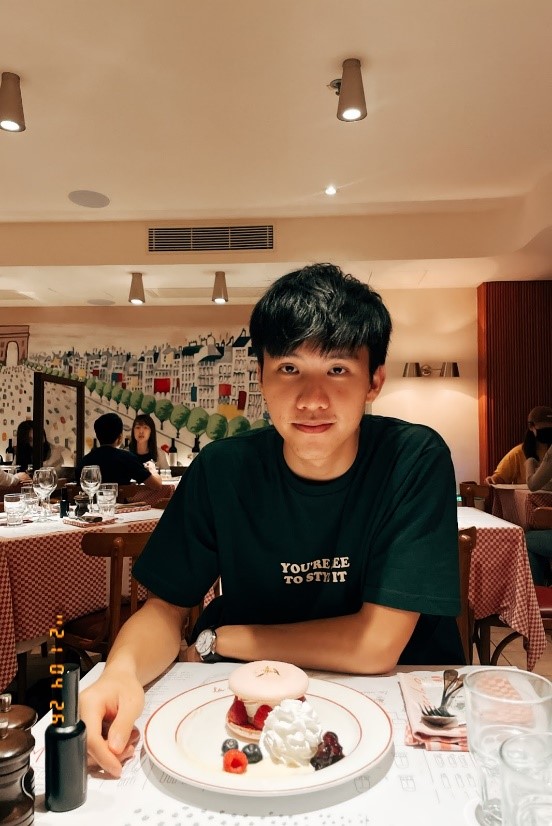
Hung Wai Kwan
BASc, Year IV
Major in Interdisciplinary Studies
Minor in Counselling
Minor in Japanese Language
Concentration in Mental Health & Society
Exchanged to Queen Mary, University of London
What does interdisciplinary education mean to you?
Interdisciplinary education is like a tool to me. While focusing on a few specific disciplines allows you to become a professional in those fields, this often limits you to those few perspectives. Interdisciplinarity enables you to get the elementary view of each discipline. After that, all you have to do is pull out the respective lens when needed. Interdisciplinarity also nurtures my ability to fast-learn other disciplines’ knowledge and allows me to differentiate different foci in each discipline. All this enables you to apply the suitable discipline.
What is one major challenge you encountered in your studies, and how did you overcome it?
Studying interdisciplinarity is no easy task, especially if you are interested in many disciplines. You may get the breadth, but not necessarily the depth! As a person with one major and three minors, it is not easy to juggle between all the disciplines and ensuring one understands all the content. To address the depth problem, I would read additional books and materials and discuss it with my fellow programme mates. I found the process very enjoyable. Everyone is keen on embarking on a conversation. I always learn something new from them.
What experiences outside the classroom have also shaped your learning?
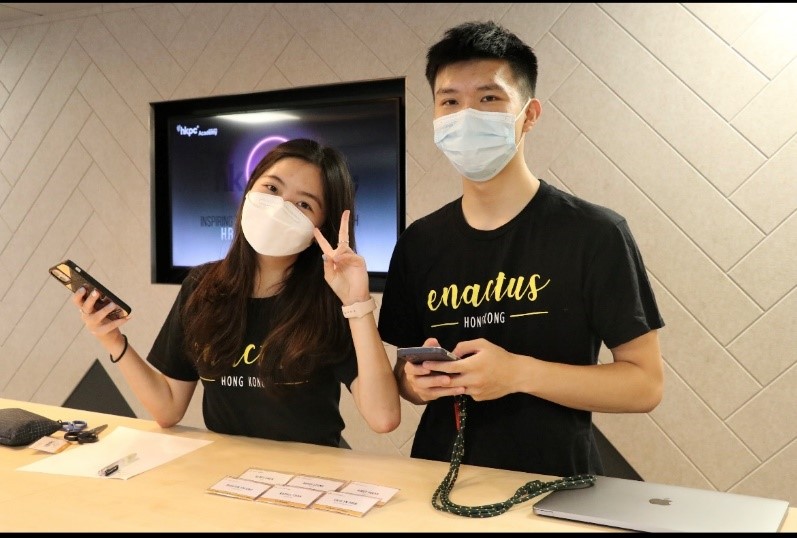
For year 2, I joined an external organization, Enactus, which aims at promoting social innovation and social entrepreneurship at the university level. It was a great experience as I could organize events to connect undergraduates and business leaders. Through chatting with them, I gradually found my interest and knowledge about career options, allowing me to integrate my interests into plans for my future career.
After participating in Enactus, I grew interested in the origins of social problems and how government interventions intertwine with—and try to alleviate— these problems. Therefore, I have also adjusted my academic focus, to minor in social policy rather than just studying it.
It is always fun to join some school events, external events, and the like. You never know what you will get!
What are you looking forward to next on your learning journey?
Learning doesn’t just happen in the classroom. While I look forward to studying more about social policy and how policies and social problems intertwine, I also look forward to meeting my friends in the BASc Common Room and chatting with them. It is always good to have a friend who studies different disciplines than you. You learn a lot! Imagine every friend customizing their interdisciplinary major to their interests. This is the diversity you have never seen before.
I am passionate about learning and working first-hand to solve social issues. I am also a sportsman who plays squash on the university team. If you are passionate about starting up something to contribute to society, we would be good friends!
The interdisciplinary skills of academic enquiry that I have gained through this concentration will help me approach world issues or corporate challenges from a holistic perspective.
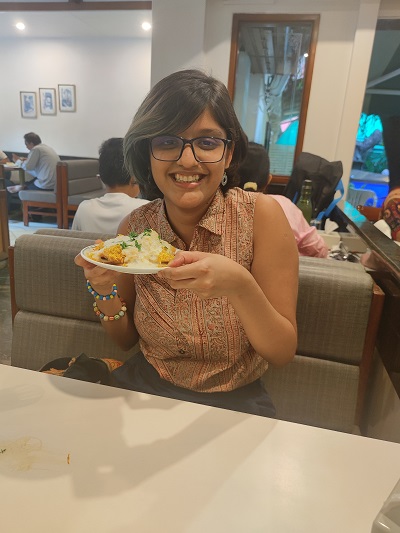
Aastha Gaur
BASc, Year IV
Major in Interdisciplinary Studies
Minor in History
Concentration in Fostering Traditional Culinary Cultures through Social Innovation
Exchanged to Bocconi University
How did you decide to concentrate in the interdisciplinary field of Food Cultures & Social Innovation?
I always thoroughly enjoyed studying about culinary cultures from an interdisciplinary perspective. My academic and extra-curricular journey at the BASc made me realize how I can utilize design thinking concepts to create models for people to engage with food cultures, and use food as a conduit to initiate cultural education, heritage preservation and discourses around social sustainability.
When do you think your interest in this interdisciplinary field began?
My interest in food cultures began back home in Pune, India, when I worked on a cultural mapping project about the city’s food culture. I wrote over 50 articles about the city’s most famous restaurants! While studying their histories, I realized how food is not a mere mix of flavours, but rich with wider historical stories that can aid larger heritage and cultural studies. During my Leadership course when I first came to HKU, I developed a start-up called Blue Plate, centred around curating healthy, cheap and quick meal plans for students. I also developed a podcast called Bun Chronicles, which was about Hong Kong’s iconic Pineapple Bun. These experiences helped me realize how food can also be a tool for social innovation and social change. I think it was my time in the first year of HKU that my interest in this interdisciplinary field began.
What courses, learning experiences or ambitions have served as the building blocks for your concentration?
The experiences surrounding Blue Plate and Bun Chronicles were my major building blocks towards developing the concentration. My other history, conservation, archaeology and design courses also deeply cemented my belief in this concentration, as their assessments allowed me to explore this interdisciplinary field in a variety of ways:
- For my conservation course I explored how Dorabjee and Sons—Pune’s oldest restaurant—had vast regional importance by creating a Statement of Significance for it.
- My Food and Empire in Colonial Asia course helped me navigate the contemporary prevalent patterns of colonialism in everyday food culture.
- For my Countries and Cultures course, I wrote about how food and language were an important expression of gender identity with the case study of the Hindi film English Vinglish (2012).
- My Contemporary Issues in Design course introduced me to the variety of ways in which design is linked to sustainability. Whilst curating an exhibition on the topic of menstruation, I came across an interesting project which used menstrual blood for cultivating watercress.
- For my Cultural Heritage and Information in the Field course, I 3-D modelled what is believed to be the world’s oldest takeout joint, and some of the oldest wine jars.
This varied and vast academic exposure made me look at food and social innovation as having a natural relationship, one which I intend to explore further through this concentration.
I chose to go to Milan, Italy for exchange due to the rich food culture of the country, and to understand global innovations in fashion and the art and cultural markets. My experiences helped me understand food culture from a European perspective and also link global historical processes to understand how food culture was shaped through globalization. The study of art markets and fashion helped me compare luxury and auction markets in food in these fields.
How might this concentration help you in your future endeavours, whether for careers, further studies, or life in general?
I plan to pursue a career in the field of experience or social design, and also hope to do an M.Phil or Ph.D in either History, Comparative Literature or South Asian Studies in the future. I strongly believe that the interdisciplinary skills of academic enquiry that I have gained through this concentration will help me approach world issues or corporate challenges from a holistic perspective.
This tailored degree really helps me explore all the options available in university and narrow it down to my expertise and line of interest.
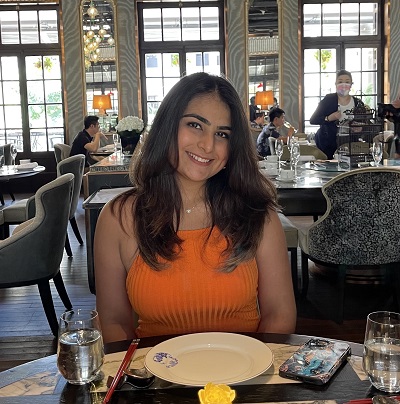
Khushee Ramesh Soni
BASc, Year IV
Major in Interdisciplinary Studies
Minor in Human Resources Management
Minor in Marketing
Concentration in Global Entertainment & Cultural Differences
It struck me one day when I was thinking about the courses I was gravitating more towards. I realised that there was this aspect of creativity from my life that I applied to a lot of courses I was taking, including:
- Common Core Courses like “Body Beauty and Fashion”, which explores sociological perspectives in the cultivation of the arts and self.
- Art History, which provided me a greater historical understanding of the art and entertainment forms that exist today.
These have helped me develop the “entertainment” part of my concentration. Along with this, the “culture” aspect came into place smoothly as in my interpretation, it focuses on the more behavioural and societal implications of our actions in the entertainment industry. Altogether, I feel that this concentration reflects my own personality as a person who regularly divulges in the field of culture (due to my bicultural upbringing as an Indian growing up in Hong Kong), and being extremely motivated by how the media and other art forms shape individuals in each generation, especially the upcoming ones.
When do you think your interest in this interdisciplinary field began?
There wasn’t a set time when it began, as the process requires a lot of reflectivity and takes quite some time to really find a concentration that best reflects me as an interdisciplinary student. However, I believe the process began at the beginning of 2022 when I realised how the courses I’ve taken— even outside my major—all included a particular topic related to cultural activity; facets of our creative lives as humans and how we achieve it, whether through research, communication amongst one another or the spread of information worldwide from external parties—they’re always interlinked.
After beginning my BAScLab Interdisciplinary Research Project (focusing on neuroscience, psychology and education policy development) with 2 other BASc students, I met a lot of participants from different faculties, each coming to study the subject of art history (the stimulus of our experiment) which they enjoyed to great extents. Their ability to enjoy art history while studying different disciplines gave me a reason for why my concentration was important, because at the end of the day, I believe our interests and creative mindsets are what brings us closer to one another.
I also explored this concentration during my Social Innovation Internship at Neurum, a mental health and well-being app brought to people in the workplace. This app deepens our understanding of the self and others with many minimalistic visual and conceptual elements in the UX design, and also inspired me personally to navigate my journey in the BASc programme.
What courses, learning experiences or ambitions have served as the building blocks for your concentration?
Along with my double minors in Human Resource Management (FOSS) and Marketing, I sense a more holistic approach through my entire concentration. My chosen courses are not only bound to the arts, sciences and social sciences but expands beyond that, with courses like Microeconomics, which taught me how humans have formed markets that evaluate and predict consumer trends and government interventions, or Introduction to Marketing, where I learned about consumer behaviour and market research methods, and how businesses are preoccupied with addressing needs and wants based on their customer demographics and even neuroscience knowledge. Some additional courses that I have chosen among my pathways are Art History, Music and the Mind, Urban Society and Culture and Environmental Science, all from the 3 faculties (Arts, Science & Social Sciences).
How might this concentration help you in your future endeavours, whether for careers, further studies, or life in general?
This tailored degree really helps me explore all the options available in university and narrow it down to my expertise and line of interest, which I perceive is very important for my career and further studies. I hope to use it to find a career somewhere in the marketing field in the near future, or perhaps do a Master’s degree in this field. My marketing minor along with the overall concentration of my degree allows for the building up of greater understanding and theoretical context on what motivates humans, and drives our behaviour from one level to the next.
What is more exciting to this flexible degree is how a career choice is open in any pathway of life. I like to keep the mentality that nothing is ever set in stone, and it will never be, even at the age of 60 years old, for example. We’re complex beings for a reason and our behavioral trends will keep shifting. With a specific concentration in Entertainment and Culture along with my two minors, I feel more comfortable entering the education, business or psychological fields as an area of further studies, or for a career.
With this degree, I’ve had a lot of moments filled with self-reflection. My university experience has had its ups and downs, especially being confused and lost in my first year. I first took only social science courses but within my second year, I took leaps and tackled new challenges to balance my academics with extracurricular activities, such as dance. Bringing in real life experiences and merging it with what I’m learning on campus is what the BASc degree uniquely offers. I believe my story, or my concentration, will keep developing within the next two years, over my exchange semester, and even after my graduation, perhaps becoming a holistic field of knowledge in itself!
A Visualisation of my Academic Exploration
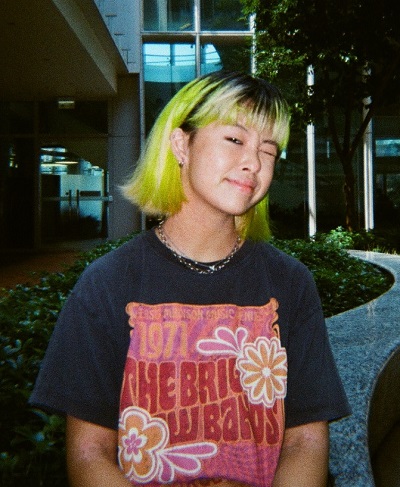
Zinei Ho
BASc, Year IV
Major in Interdisciplinary Studies
Minor in Sociology
Concentration in Interdisciplinary Approaches to Urbanisation
Exchanged to University of Oslo
An infinitely growing body of knowledge.
I begin somewhere on this, as a result of my academic history and upbringing.
It appears that I am encouraged to only pick one door. But is it necessary?
It seems that outside of every door, I am looking at the same body of knowledge, but from a different angle. It seems to all be connected.
Maybe I am a small ship that is sailing through a large body of knowledge.
Through looking at different angles, I can see the parameters and limitations of “The Knowledge Body”. I start to get a brief idea of how much exploration is possible, and how much I can see.
To represent depth, maybe we can use the metaphor of the ocean. At some point, you realize not only is there width and size of the knowledge body, there is also depth.
Sometimes you gain the interest (and tools) to go deeper, sometimes you don’t. Oftentimes you don’t have time.
There are other things you care about besides exploring. Exploring knowledge isn’t your only interest.
The body of knowledge is sometimes sectioned off into disciplines, perhaps arbitrarily. I mean, we must start somewhere…right?
Notice all the space between the sections. I think those are spaces that interdisciplinary studies can be encouraged to look at. There are also sections that overlap, just like how sociology intersects with geography.
Don’t you think that kind of looks likes the world map? Just, kind of arbitrarily drawing boundaries. I mean, some boundaries must exist, but they are all connected in some way.

Chan Ngo Suet, Christie (Laidlaw Scholar)
BASc, Year II
Major in Interdisciplinary Studies
Minor in Environmental Science
As a freshman, I introduced myself as being ‘more interested in quantitative science’. Or so I thought. The course BASC1001 has forged a cheerful farewell to the self I was accustomed to — qualitative research could be just as intriguing! Soon, I found myself typing my research proposal for the Laidlaw Scholarship application, during which the learnings from BASC1001 came in handy. The course also introduced me to Dr Hoang, who generously provided guidance and support. Venturing into my Laidlaw Scholar journey, my experience has been far from ‘academic-oriented’ and ‘individual office work’ — alongside meeting new friends from my Laidlaw cohort and becoming part of a research team, I have enjoyed great work flexibility too!
Year 2 Exchange to Peking University (Yuanpei College)

Yeung Chak Kwan, William
BASc, Year III
Major in Interdisciplinary Studies
Major in Entrepreneurship, Design and Innovation
Exchanged to Peking University
BASc is a degree perfect for people who constantly seek new challenges and vigorously want to explore the world. Back in secondary school, I was interested in both arts and social sciences. Seeing the description of BASc, I immediately decided to put this as A1 of my JUPAS choice. It did not disappoint, offering me vast opportunities to excavate knowledge from all disciplines.
Though it was hard to study new subjects every semester, I enjoyed discovering interesting topics and relating them to my area of interest. Borderlines of disciplines are diminishing to a point where specialists in one discipline cannot suffice in achieving new goals both in academia and the workplace. After being trained as a generalist, I have noticed so many loopholes in society that desperately need to be fixed. The flexibility of choosing Entrepreneurship, Design, and Innovation (EDI) offered by HKU Business School as my second major allowed me to solve real-world problems in an interdisciplinary setting. Bringing all the disciplinary knowledge to the table in solving business problems was the immediate societal impact BASc provides. These two majors combined would be suitable for those who wish to balance academic studying and job seeking.
Reflections on BASc – Interdisciplinarity Studies through the years
Gitanjali Anna Pies
BASc (2023)
Major in Interdisciplinary Studies
Major in Economics
Minor in Journalism
Year 1: Attending a UK study tour as part of being a student ambassador at my hall. It was such a wonderful experience to be able to interact with students from the University of Oxford and the University of Cambridge, attend their high table dinners, listen to guest speakers, and experience their college life.
Year 2: Got the opportunity to take part in a Cyberport University Partnership Programme which involved months of preparation with various bootcamps, leadership workshops and mentoring session. Despite the challenge, I formed strong connections with my team and pushed myself to stretch my comfort zone and discover new interests. I was really proud that we were one of the winners of the 10k funding.
Year 3: A memorable moment was taking on the president position at the Vedas Heart and Soul Society. This provided me with opportunities to interact with HKU students from different backgrounds, help plan spiritual workshops and yoga classes, and organise team bonding activities.
This was a really rewarding experience, and I treasure the connections and ties I formed.
Year 4: One memorable experience was the entire capstone process for both my BASc degree and my second degree in Economics. It was a really rewarding learning opportunity where I finally was making sense of my entire four-year journey and noticing connections between all the disciplines I had been studying. This also marked a point in which I gained a bit more clarity about my interest in exploring Hong Kong’s social policies further.

